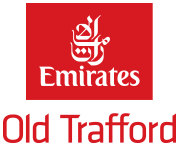From the Mersey to the World: How Liverpool’s Caribbean Cricketers Created a Lasting Legacy
As Lancashire Cricket Foundation marks Black History Month, we celebrate a remarkable story of friendship, heritage and the love of cricket that grew from the banks of the Mersey and continues to thrive today.
Black History Month provides an important opportunity to recognise and celebrate the contributions and achievements of Black communities across the UK. Few stories embody the enduring spirit of sport, identity and belonging as powerfully as that of the Merseyside Commonwealth Conference Cricket Club (MCCCC), a team whose proud history spans more than 70 years.
A Liverpool Beginning
For Kelvin Alleyne, cricket was in his blood long before he picked up a bat. "When you grow up in Liverpool, cricket isn’t the first sport on your mind back then,” he laughs. “But when you’ve got West Indian international players throwing a ball to you on the boundary as a kid – it’s hard not to love the game.”
Kelvin's father, Wilf 'Panky' Alleyne, captained the local side for many years before handing over the reins to his son. “We’re really proud of the journey of the club and the fact it still exists today,” Kelvin says.
The Family atmosphere was at the heart of everything. “We always played for fun,” he remembers. “We’d load the fridges with Red Stripe, stay after games, and make sure we got to know people. Yes, we were competitive, but it wasn’t win-at-all-costs. It was about smiles, laughter that’s what cricket’s about.”
From the Caribbean Centre to Cricket Fame
The story began in 1948, when a team of players of Caribbean descent came together under names such as West Indian Cricket Club, West Indian Mersey, and later, International Cricket Club.
They met and socialised at the Caribbean Centre on Upper Parliament Street in Toxteth, where matches were arranged across the region. Many of the players worked at Sealand in Cheshire, building aircraft frames for Lancaster Bombers, or at Cammell Laird shipyard on the Wirral.
"It was a nomadic team" Kelvin explains, “There was no set ground. They just wanted to play cricket wherever and whenever they could."
And play they did, often alongside some of the biggest names in the sport. On occasion, legends such as Sir Garfield Sobers, Sir Viv Richards, and Everton Weekes turned out for the team, adding to the side’s growing reputation.
Success, Setbacks and Spirit
With success came challenges, as the team entered local leagues and began to dominate, complaints from rival clubs followed. “The side won a lot,” Kelvin admits. “Sometimes too much for people’s liking. There were times we were kicked out of leagues but all we wanted was to play cricket.”
Through the 1970s and 80s, the club adapted and endured, by the 1990s they became known as the Merseyside Commonwealth Conference Cricket Club, reflecting a wider identity that celebrated inclusion and diversity.
The roll call of players continued to impress, featuring names such as Liverpool and England footballer John Barnes, West Indies Test bowler Marlon Black, and Ireland international Tariq Afridi.
New Eras, Same Values
In recent years, MCCCC competed in the Southport & District Amateur Cricket League, welcoming players from across the world including a new generation of cricketers from Sri Lankan heritage.
Short-term home grounds at Liverpool University and Liverpool College, supported by lottery funding, helped the club stabilise and grow. “Myself, Mel (Hall), Eddie (Herbert) and Phil (Griffiths) kept things going,” Kelvin says. “We were determined to make sure the club kept its heart and its welcome to everyone.”
Now, after completing their final season in the Southport League, MCCCC are preparing for an exciting new chapter in the Liverpool & District Cricket Competition. With ongoing support from Paul Morris, Cricket Development Officer for Liverpool & Knowsley, the club continues to plan its future, one built on inclusion, heritage, and love for the game.
A Living Legacy
What began as a social team of Caribbean friends in post-war Liverpool has become a living testament to community, culture and cricket. The names and faces may have changed, but the spirit remains the same: play hard, smile often, and always stay for a drink afterwards. As Black History Month reminds us, these are the stories that shaped our game and continue to inspire the next generation.
By Greg Pennington, Lancashire Cricket Foundation













